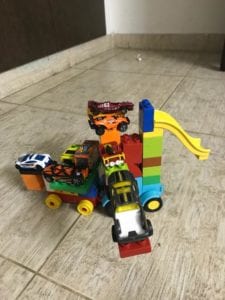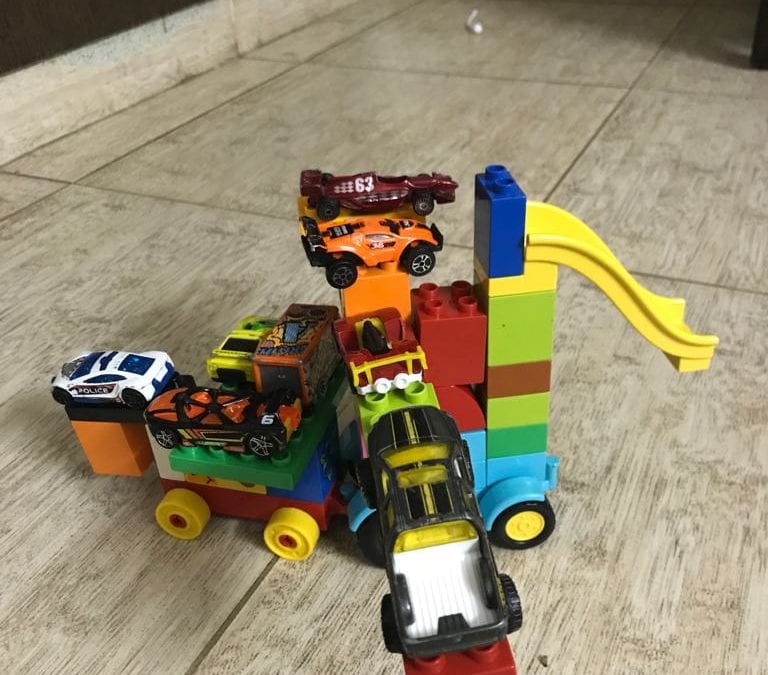Our Playworker Development Course brings people together from all over the world to talk about playwork. Divya is from India. She joined the course in March 2019 with the intention of channelising her passion for play. We’ve invited her to reflect on her PDC journey so far.
As a parent, my primary setting is my family, my home. My children are almost always in a state of play. They play with their heart and soul, filling the house at times with silence, at others noise, with calm, with chaos, with camaraderie, and even belligerence. Playwork has deepened the appreciation I have for the way my children play, and helped me accept the messier, nosier and even destructive forms that their play often takes. I understand that my children need the whole house to play, that it cannot be restricted to their room.
How parenting & playwork plays out
Therefore, I practice playwork when I play with them and when I don’t. Additionally, I strive to practice playwork when I think through possible interventions before I actually intervene.
Then, I practice playwork when I sometimes don’t know what to do when a situation of conflict arises. Next, I practice playwork when I add to their possessions in a manner that intensifies and expands their universe of play. I practice playwork when I plan our vacations. I practice playwork when I think of them even when they are not actually around.
Perfecting playwork
Playwork is not perfect, and nor is there such a thing as the perfect playworker, I suspect. Much like there is no such thing as the perfect parent and parenting style, or teacher and teaching style. Yet, the intentional, mindful and contemplative nature of playwork paves the way for democratic, trustful and respectful parenting. New parents generally learn the value of play incrementally.
Child-led or child-friendly?
Watching my firstborn grow from an infant to a toddler and then pre-schooler was really about watching him play. That is, watching how it evolves, how it changes and grows in complexity. One baby later, understanding and adapting Playwork Principles to child-raising led me to what has become an important insight. In short, I examine the way I understand and practice playwork. Specifically, the difference between child-led and being child-friendly.
It is common to come across the term “child-friendly” as a parent. Apart from being code for minimal risk, or risk-free, it is an approach to the way education is delivered, or a term used to describe a space, such as a child-friendly hotel or playground. However, I don’t recall having encountered the use of the term child-friendly in Playwork materials.
The emphasis, instead, is on the term child-led. The distinction has struck me as crucial in acknowledging two things: one, that the child is his or her own being, not simply the extension of the people and influences on his or her life; and two, a child’s actions (read: play) has intrinsic worth to the child, which should not be questioned, judged or re-directed, except in exceptional circumstances.
How the PDC helps parenting & playwork
Armed with the finer points of playwork wisdom being instilled within me by the Playworker Development Course, I provide my children with as much playtime as possible, encourage and support their very particular play needs and play narratives. As I allow myself to be led into their world of amusing, crazy, intelligent, imaginative, exploratory, adventurous, and risky play, I watch the wonders of play unfold their beautiful personalities and abilities with much contentment. Parenting with playwork is a pleasure.

Reflections on Parenting & Playwork
We run regular cohorts of the Playworker Development Course. If you want to know more information about the course itself, check out the course page. To join our next cohort, email suzanna@popupadventureplay.org.
By Divya Badami Rao
